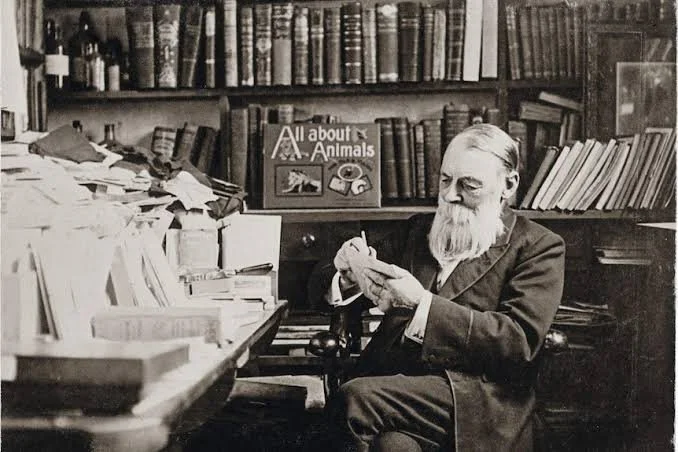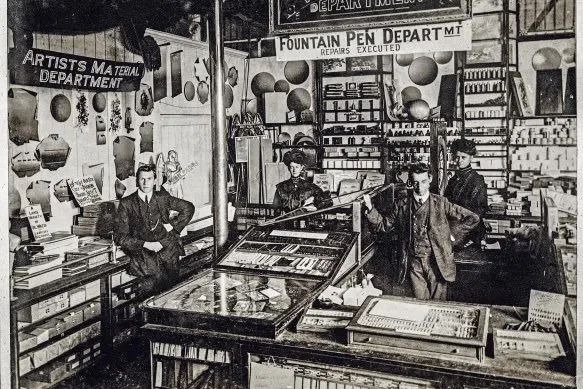E.W. COLE
E. W. Cole arrived in Melbourne during the gold rush, penniless but full of imagination. Born in Kent, England, in 1832, he came to Australia in search of opportunity.
What he brought with him was something rarer. He had a vision of how ideas, books and curiosity could reshape a city.
He began with small ventures. Selling pies from a wheelbarrow. Publishing pamphlets. Running a printing press. But in 1883, he opened the doors to what would become one of Melbourne’s most beloved landmarks: Cole’s Book Arcade on Bourke Street.
This was no ordinary bookstore. It was a three-storey “palace of the intellect,” filled not just with books but with music, mirrors, clocks, mechanical toys and a Japanese tea salon. Visitors could listen to live performances, browse rare books, wander through a fernery or simply sit and read for as long as they liked. There was even a monkey enclosure suspended above the shop floor.
Cole’s vision was clear. Knowledge should be free. Wonder should be part of everyday life. Learning should never feel out of reach.
Image: State Library Victoria
The Iconic wrought iron arch that still stands today as a reminder of the great Cole’s Book Arcade
The Arcade became a destination. Families came not just to shop but to explore. The space blurred the lines between education and entertainment, retail and spectacle. At its peak, Cole’s employed over 200 staff and housed more than two million books. But it was the experience of the place that people remembered most.
That same spirit of curiosity and joyful discovery has found its way into Hotel Indigo Melbourne Little Collins.
The monkeys you see throughout the hotel, perched on light fittings, peeking from corners, and swinging above the bar, are a direct nod to Cole’s Book Arcade. They are reminders to look up, to notice, to play. The hotel’s design is layered with texture, surprise and whimsy. It echoes the theatricality of Cole’s spaces. Even the way guests move through the building, encountering murals, changing light and unexpected details, reflects his belief that discovery should be part of the everyday.
Cole was also a prolific publisher and social thinker. He produced his own dictionaries, wrote on science and society, and printed his personal views on equality and education. His legacy goes far beyond bookselling. He believed in the potential of every individual to grow through knowledge and delight.
Though the original Book Arcade was demolished in the 1920s, part of it still remains if you know where to look. In Howey Place, just off Little Collins Street, the wrought iron arch ceiling that once formed part of the Arcade still stretches above the laneway. Beneath it, the neon Palace of Intellect sign pays homage to Cole’s grand vision, a glowing reminder of how his spirit continues to animate Melbourne’s heart. It is a small but powerful fragment of the Arcade, tucked into the city like a living memory.
E. W. Cole gave Melbourne more than a bookstore. He gave it permission to be curious.
Image: State Library Victoria
Image: State Library Victoria
Image: State Library Victoria







